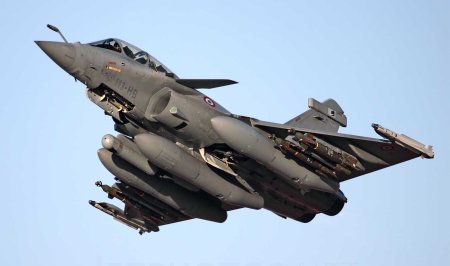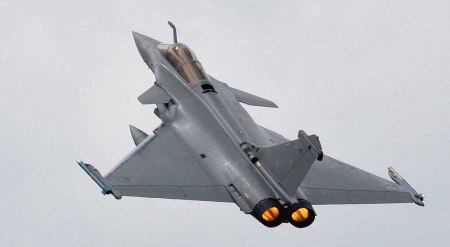Bombs are weapons of mass destruction, and even the “smartest” bombs will kill indiscriminately, will kill not only the targeted villains, but also all humans and fellow animals mingled with them. For this reason one should be careful in justifying or even praising a bombing campaign and other military actions where living beings are shredded into small pieces of flesh or burned to ash. For the innocent victims it doesn’t matter if the bombs were dropped from an US-American, a French, a Saudi Arabian, or a Russian plane.
The quote “violence only begets more violence” in its many variations is attributed to the Bible and to some famous people, including Matin Luther King. Has it lost its meaning, has it been forgotten, has it been disproved?
Ryan O’Neill Everything left
How selective solidarity and sympathy aids a jingoistic foreign policy
On Sunday evening, the first news reports started to come through that France had conducted its largest bombing campaign to date against the IS stronghold Raqqa, Syria. The Guardian referred to Raqqa as an “IS bastion,” and according to French foreign minister Laurent Fabius, the decision to launch such “massive, retaliatory airstrikes” was an act of self-defense, The airstrikes followed Friday’s terror attacks in Paris which left 129 people dead.
Speaking on the first day of the G20 summit in Turkey, Laurent Fabius claimed that:
“France has always said that because she has been threatened and attacked by Daesh (IS), it would be normal that she would react in the framework of self-defense. That’s what we did today with the strikes on Raqqa..we can’t let Daesh act without reacting.”
Aside from drawing attention to the carefully selected language of war, deliberately used by elements of the mainstream media in events such as these, it is important to thoroughly consider the public approval to these claims of self defense and the environment that gives the claims such weight.
Over the weekend following the Paris attacks, hashtags to pray for Paris were everywhere on social media and Facebook gave users the opportunity to cover their profile pictures in the colors of the French flag. Without falling into the sickening diatribe and ideological battles of the nitpicking left, it is important to understand that with France using the narrative of self defense to justify a violent, ongoing bombing campaign, the public has inevitably fallen lockstep in an alliance, that although perceived as defensive or sympathetic by those who make such gestures, can easily appear offensive to others. At the current time of writing, massive portions of social media from Facebook to Twitter are awash with the same flag that don the jets dropping bombs on a city of 200,000 people. A city that was once home to over a million Syrians, most of whom had to flee and whose lives have been destroyed not only by IS but by a war that foreign powers, including France, have been massively instigating.
The day before the events in Paris, 43 people were killed in an IS attack in Beirut and an IS suicide bomber killed 18 people in Baghdad. The reaction to these tragic events however contained very little of the sentiments of solidarity and sympathy to the victims of the attacks in Paris. A predictable response to such selective grief has inevitably taken centre stage however and not only do we have French flags covering social media but a new army of online Europeans taking it upon themselves to decide which victim is more deserving of victimhood and whether someone has the right to grieve depending on their past displays of grief to other tragic events. Various political groups or individuals are engaging in self righteous rhetorical questioning for the purpose of self gratification or even declarations of one being less racist or more internationalist in scope. In the public discourse consequently the tragic death of innocent people, whether in Paris, Beirut, Baghdad or indeed Raqqa, has become less important than the egos of whoever wishes to contribute an opinion.
We must get past petty and divisive tribal ideological battles if we are to understand why certain parts of the public react to these tragic events in such an unqualified manner. If we seriously wish to create obstacles to the violent results of violent events, whether it is dropping bombs on Syria or setting fire to a refugee camp in Calais, we must understand the environment in which these power relationships take place. The public perception to a specific event is shaped by a public discourse that links language, institutions, and practices. Only by deconstructing this relationship of language, institutions, and practices can we begin to understand the divisive structures that make such selective grief possible and even inevitable. For instance, just as Raqqa is described as an “IS stronghold”, Bourj el-Barajneh, the predominately Shia suburb of Beirut that IS attacked on Thursday was described in the press as a “Hezbollah stronghold.” Such language takes away the humanity of the innocent victims of the IS attack and gives the impression of the event as one which has taken place in an ongoing violent war between Muslim groups, far away in the battlefield of the Arab world. The purpose of this is to sow the idea of difference, the idea of us and them, Western values and Muslim values, here and there, and if such a conflict spills over into our world, it has less to do with the violent foreign policy of our governments and more to do with the Muslims who have come here, bringing “their” violence with them.
As long as this divisive discourse is prevalent in our narrative, increased surveillance and other draconian practices of the security services become a much more pressing issue than the need to question the foreign policy of Western governments that have long been exporting war and conflict and instigating wars throughout the Middle East, Africa, and Asia. Following 9/11, and even much earlier to a lesser degree, Islamism had been “radicalized” through surveillance. Since all racisms are socially and politically constructed rather than resting on the reality of any biological race, cultural markers associated with Islamism (forms of dress, languages, etc.) have become racial markers which indicate people supposedly prone to violence and terrorism, justifying a whole range of surveillance and criminalization, from arbitrary arrests, indefinite detention, deportation, torture, solitary confinement, the use of secret evidence, and convictions for crimes that “we Westeners” would not be jailed for, such as speech, donations to charitable organizations, and other acts considered material support for terrorism. These racial underpinnings also help to sustain the foreign policy objectives of the USA and Europe as the vast death toll in Afghanistan, Iraq, Pakistan, Somalia, Yemen, Libya, Syria, and elsewhere could not be sustained without the dehumanization of its Muslim victims. Racism at home goes hand in hand with colonization abroad.
Laurent Fabius was right when he said, that France could not let IS act without reacting, as that is an inevitable feature of the divisive discourse we have created and maintained. As long as this divisive discourse keeps us in a constant state of war, a war that now has a tangible enemy, or at least a collective label to associate with terrorism, every action requires a reaction. Repeated standoffs though will not only serve to make decision makers more jittery but will prepare European populations psychologically for more war. However, as we can see throughout history, each crisis leaves behind resentment from those who feel they have been the ones to back down, or those who have been on the receiving end of new security measures in response to such crises. Both of these psychological responses play into the hands of radical elements which will inevitably amplify such resentment and make it more difficult to back down or display caution when the next crisis takes place. In the first quarter of this year following the attacks on Charlie Hebdo, attacks on Muslims in France increased by 500 percent and are now already three times as much than in 2014.
The men, women and children that will be killed in their homes this week from French bombs in Syria are no more willing combatants in a war than those watching a rock concert in Paris were, but as the bombs from French planes rain down on Syrian homes, like they did in Libya or Mali, draping ourselves in the flag of France, no matter if ignorant or well intentioned, will inevitably make the divisions of this war ever deeper. As long as we are unquestioning and complicit in the discursive formations that use racial prerogatives to justify our own violence, we render ourselves to what Jean Paul Sartre describes as “half victim, half accomplice,” when our violence inevitably returns.


Keine Kommentare:
Kommentar veröffentlichen